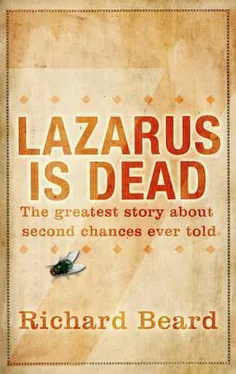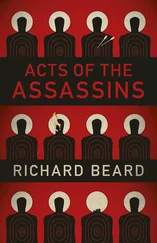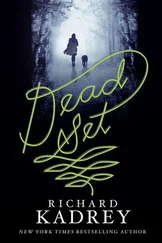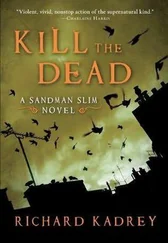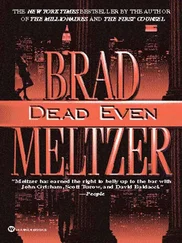At a rough count, from the artistic evidence of the centuries, about half kneel down before Jesus. The other half bow low to Lazarus.
The raising of Lazarus is the seventh and decisive miracle in the Book of John. Immediately, something new is seen to begin.
‘ A large crowd of Jews found out that Jesus was there [in Bethany] and came, not only because of him but also to see Lazarus ’ (John 12: 9).
They see Lazarus carried aloft, half conscious, manhandled from the tombs to the village. Alongside the weeping there is cheering and applause.
Lazarus raises a limp hand to acknowledge the acclaim. He suffered and was buried and on the fourth day he rose again with glory to … to what? The questions can wait. He is receiving, finally, the attention he deserves.
‘Leave him be!’ Absalom shouts, shoving people away, taking charge. They carry Lazarus across the square and down to the village mikveh . ‘He must cleanse himself after contact with the dead!’
‘Ask him!’
‘Afterwards! Ask him when he’s clean!’
Lazarus is suddenly alone in the cave of the mikveh . In the half-dark he tumbles into the water, floats, makes himself sit. The silence beneath the rocks feels like a space between life and death.
He watches the strips of linen soak from his body. He swivels his eyes left, then right. They are working; he can see without pain. He cautiously pushes the middle finger of his right hand against his upper front incisor. The tooth is solid in his head. He scrapes the length of his tongue along the sharpness of his fingernail.
The oil from the myrrh and aloes separates as globules of fat on the water. Lazarus peels himself free and, sitting naked in the water, he examines his body. He checks the tops of his shoulders, the backs of his hands. There is no visible scarring from the rashes or the pox, and when he breathes deeply with relief, no sharp ache in his lungs.
His fingernails need cutting. He inspects the groins between his toes. He is thinner, but then he’s been ill — checking his hips and behind his knees he sees no other evidence that dying has aged him.
He washes vigorously, beaks his nose into his armpits. He sniffs at his chest, the crook of his elbow, then cups his hand in front of his mouth. Not even his breath smells. He is confident that this is so.
An echo. He looks towards the entrance. Nobody there.
Lazarus lies back and sinks his mouth beneath the water line. He blows out bubbles of air. Only his eyes and nose break the surface, and above him on the roof of the cave blisters of water threaten but do not fall.
He is hungry.
The shuffle of a footstep. Lazarus cocks his head, his ears out of the water. A single drip from the stone ceiling, then silence. No one would dare, he thinks, no one would dare intrude on the untouchable friend of Jesus.
His beating heart slows. He lies back and relaxes his neck, lets his head slip under, his mouth, his nose. He stays like this for several seconds, testing himself for special underwater powers retrieved from the life hereafter. His face slips out and he takes a breath, then he shuts his eyes and submerges again.
A hand closes over his nose and forces his head to the bottom.
1
WHAT DO WE know?
In the twenty-first century after the events described, the bible can be seen as unreliable, even fictional. In any quest for the historical Lazarus, however, the Christian New Testament remains an invaluable resource.
‘ So the chief priests made plans to kill Lazarus as well, for on account of him many of the Jews were going over to Jesus and putting their faith in him ’ (John 12: 10–11).
Not everyone is ready to bow down before Lazarus, whatever he may have experienced.
The Sanhedrin want him dead, and this information has endured for two thousand years. The chief priests ‘made plans’, but they couldn’t know that the time and place were not in favour of plan makers.
The possible death of Lazarus, so soon after his resurrection, offends our notion of what a god would allow. This accounts for the imaginative difficulty of trying to recreate a convincing murder.
‘Lazarus started to scream,’ Kazantzakis writes in The Last Temptation . He has decided that Barabbas, a well-known criminal, will be the murderer. ‘Barabbas seized him by the Adam’s apple, but was immediately overcome with fright. He had caught hold of something exceedingly soft, like cotton. No — softer, like air. His fingernails went in and came out again without drawing a single drop of blood.’
Kazantzakis is mystified. He has Barabbas, an amateur assassin, grab Lazarus by the arm: the arm comes off in his hand. Barabbas can’t get his knife through Lazarus’s throat, which resists him like a ‘tuft of wool’. Finally, ‘he seized him [Lazarus] at both ends and twisted him and gave him a snap. His vertebrae uncoupled and he separated at the middle into two pieces.’
This is not a realist portrayal grounded in contemporary fact. The implausibility in the detail suggests that the Sanhedrin-planned murder of Lazarus must have failed. The story doesn’t ring true. The slaying of Lazarus, so soon after he returned from the dead, is incompatible with our instinct for what should happen next.
No, Lazarus wasn’t killed in obedience to orders issued by the Sanhedrin. Not straight away.
2
He releases the rising silver of his final wasted breath. His eyes widen, his cheeks swell. This time Lazarus will die.
The hand snatches his hair and yanks him upwards. Lazarus bursts from the water and gulps a tremendous draught of life.
The hand pushes him under again.
But think of his two poor sisters, who have suffered enough. God is making an effort to communicate his presence on earth at this time, and not exclusively through anguish and affliction.
The hand pulls him out again. Lazarus heaves in air and blinks, flails, gains his footing in the pool.
‘That’s the second time I’ve saved you,’ Yanav says. He is up to his waist in the water, and holds Lazarus away from him by the hair. ‘Don’t do anything stupid.’
Lazarus lashes out towards Yanav’s face. Yanav snaps his head back and lets Lazarus go. The water surges against the edge of the pool and rebounds against them.
‘I wanted to see if you’d fight for it. You like being alive, don’t you?’
Lazarus shakes drops of water from the ends of his fingertips. He raises his fist. ‘You’re lucky I don’t kill you.’
‘I wanted to know if you’d scare. Come on, I brought you some clothes.’
As Lazarus dresses, Yanav wrings out his hems. He has seen Lazarus weaken and die, but the privileges of a healer rarely last long. The intimacy fades as soon as his patients are well.
‘I’m all ears. Tell me how the two of you did it.’
Lazarus cinches his belt and looks up. ‘That’s a very good question.’
‘What’s the answer?’
‘You just tried to drown me. You won’t be the first to know.’
Immediately outside the cave about two hundred people are jostling for position. Isaiah is at the front, standing slightly ahead of Absalom. There is no way past them. Yanav has followed Lazarus into the light.
‘Incredible,’ Isaiah says. The crowd allows him to speak — he is a member of the Sanhedrin council. ‘Such a wonderful surprise. Congratulations. This is extraordinary.’
Isaiah narrows his eyes as if to see through Lazarus to the other side. Lazarus bangs his heart with his fist.
‘Solid as the day I was born. Yanav inspected me thoroughly. I’m all in one piece.’
‘He’s a lucky man,’ Yanav says. ‘Alive and healthy.’
Читать дальше
